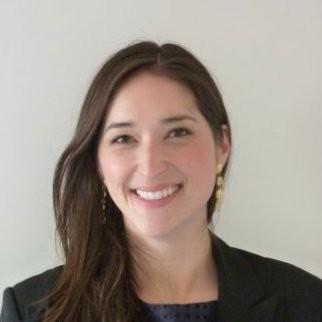Helena Harnik, Programmes Director, Motherhood Collective Impact Program (MCIP), The Synergist
The Motherhood Collective Impact program (MCIP) is a not-for-profit partnership that aims to address the most challenging issues in maternal health. We aim to bring all those who have the potential to improve maternal health together within an interconnected ecosystem, to facilitate collaboration, to create solutions and match proven interventions with resources that can have a tangible and timely impact.
Our annual online event Safe Motherhood Week is back for 2020 and this year we want to celebrate the nurses and midwives around the world who work hard to ensure the women and babies they care for have a positive pregnancy experience. We believe that this is a natural focus for us, given that 2020 has been designated the UN Year of the Nurse and Midwife.
We believe that nurses and midwives are critically important for a positive pregnancy experience, and given the challenges the current Covid pandemic presents for our healthcare systems, their role is more important than ever. According to the World Health Organization (WHO), quality midwifery reduces maternal and newborn mortality and stillbirth rates by over 80 per cent, and reduces preterm labour and birth by 24 per cent.
It is also something I have personal experience of: as a mother with two young children, I have witnessed firsthand how important they are at every step of the pregnancy journey – from preparing for the birth, to the birth itself, and providing care and support after difficult first weeks after the birth. We know that their role in providing care is even more critical in rural or developed world settings, where specialist care is minimal or non-existent. Worldwide, we know that some 30 million women do not give birth in a health facility and 45 million receive inadequate ante-natal care.
It has been well-documented that a positive pregnancy experience also has a positive impact later in life in terms of health outcomes for the mother and baby, as well as a discernible positive economic impact; research has shown that in countries with low rates of maternal and child mortality, their GDP is proportionately higher.
At MCIP part of our mission is to support other initiatives in maternal health, and the decision came naturally to build on this important initiative to give recognition to the critical role of the nurse and midwife.
No one has been immune to the dramatic and far-reaching impacts of the Covid-19 pandemic and it appears the effects will be long-lasting. It was incumbent among us at MCIP to highlight and explore how Covid will impact the pregnancy experience.
It has always been our goal to build support to recognise maternal and neonatal care as an international priority, a topic that we feel is frequently overlooked and under-resourced. Covid is a virus that can kill or cause long-term health effects, but the pandemic has also resulted in untold collateral damage to routine healthcare and care for women in particular. Millions of women are at risk of subpar care due to cancelled or delayed maternity services, while others must give birth alone as hospitals maintain visitor restrictions. The midwife-woman relationship has changed irrevocably; in an attempt to maintain distance and reduce cross-infection, face-to-face contact is minimised.
Yet Covid-19 is also an opportunity, as it may accelerate changes that were already happening. We no longer have to accept the status quo in maternal healthcare – we can completely rethink how it is delivered and experienced. For example, the necessary shift to telemedicine and online care may be an aspect that remains with us long after the pandemic has subsided, enhancing accessibility and availability of services for those who could not previously avail of them.
The latter is the focus of a new survey we are launching during SMW 2020, which seeks to understand how women and healthcare professionals would prefer to receive maternal and reproductive care in a post Covid-19 era. Specifically, we are exploring remote care and telemedicine, and the opportunities they provide for maternal care, which we believe have not been adequately addressed in the extensive Covid research currently underway. By sharing these learnings with the broader maternal healthcare community, we hope to have a positive – and immediate – impact on the pregnancy experience of women.
This year we are also supporting the important topic of pregnancy/breastfeeding and medicine through our participation in IMI ConcePTION, a landmark public-private partnership that is aiming to radically and rapidly reduce uncertainty about the effects of medication used during pregnancy and breastfeeding to benefit women in making informed decisions about medications used before, during and after pregnancy.
A vast information gap exists for many women and HCPs who don’t even realise that for the vast majority of medicines, we are lacking the requisite safety data and evidence to ensure it can be safely taken during pregnancy and breastfeeding. SMW represents a unique opportunity to raise awareness of this topic and the survey will also support IMI ConcePTION’s work to build an online knowledge bank of searchable information about the safety of different medicines during pregnancy and breastfeeding, by understanding how women are using the internet to search for information, and how these habits might be changing post Covid-19.
We call on pregnant women and HCPs to take our survey and share it widely with your networks so that we can build a comprehensive picture of what women want from maternal healthcare and how HCPs would like to deliver it.
Safe Motherhood Week is a unique event, one that shines a light on the importance of maternal healthcare and focuses on the rights of everyone to a positive pregnancy experience. While the world may face new challenges this year, some battles are still ongoing. But SMW 2020 is also an opportunity to highlight the great work being done by those invested in maternal healthcare, and this year especially our nurses and midwives.
